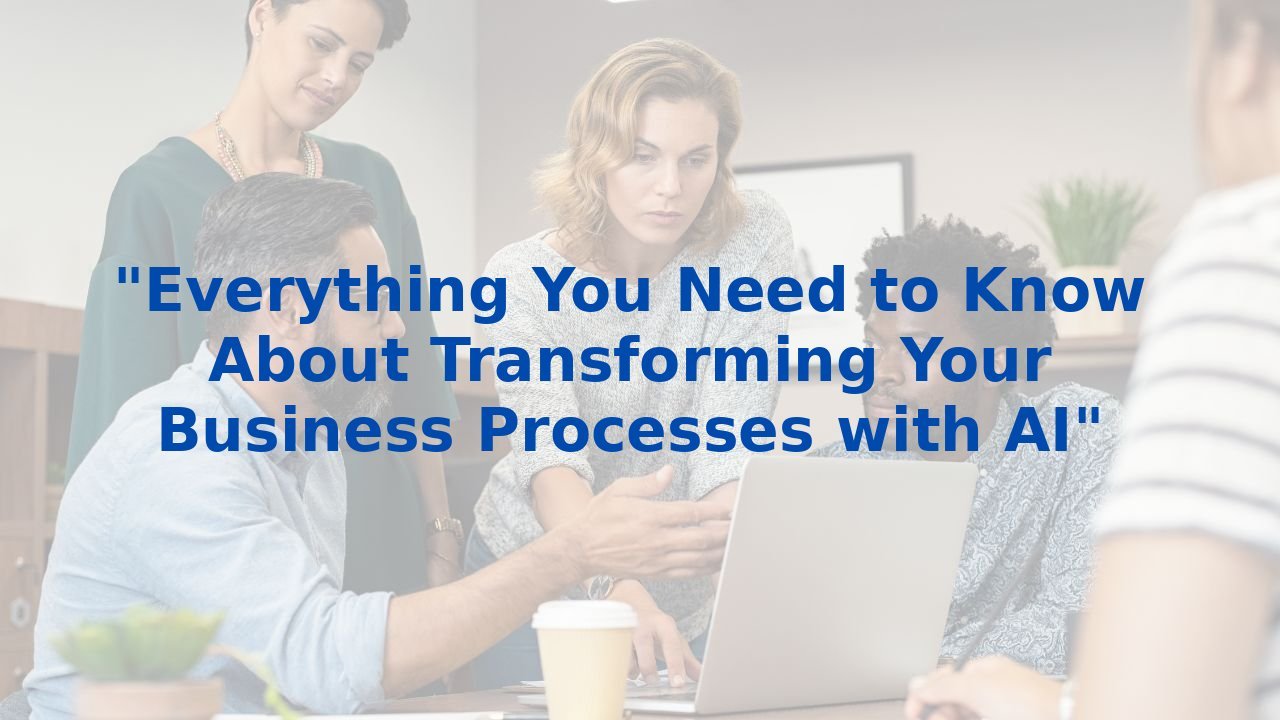How To Evolve Your Leadership Team Through Funding Rounds With AI
The Evolution of Leadership Teams Through Funding Rounds
In today’s fast-paced business landscape, the dynamics of leadership teams undergo significant transformation as companies progress through various rounds of funding. These shifts are driven by the need to adapt to increasing complexities, scale operations, and implement robust strategies that align with investor expectations. One compelling way to navigate these changes is through the deployment of AI technologies, enhancing business processes and ultimately improving overall organizational efficiency.
Understanding the Leadership Evolution
As organizations embark on their funding journey—from seed funding to Series A, B, and beyond—the complexity of their operations often escalates. Initially, a startup may operate with a small team, where roles overlap and decisions are made quickly. However, as the business scales, leadership structures become more intricate, necessitating the introduction of specialized roles. This evolution can lead to increased strain on communication, project management, and operational workflows.
Refining Communication and Decision-Making
One of the most crucial areas for improvement during this evolution is communication. Early-stage teams are often informal, which can lead to inconsistencies as the team grows. AI tools enable streamlined communication channels, facilitating real-time collaboration among leadership teams. Enhanced communication platforms powered by AI can analyze interactions and provide insights into team dynamics, fostering better relationships and quicker decision-making processes.
Implementing Data-Driven Decision Making
With each funding round, the stakes rise—investors expect more strategic decisions backed by data. AI-driven analytics tools empower leadership teams to delve into vast datasets, extracting meaningful insights that drive effective decision-making. This capacity not only optimizes performance but also cultivates confidence among stakeholders, ensuring alignment with the overarching organizational goals.
Improving Operational Efficiency Through AI
Beyond communication and decision-making, operational processes often experience bottlenecks as organizations scale. Implementing AI technologies can lead to substantial improvements in efficiency across these processes.
Automating Routine Tasks
AI excels at automating repetitive tasks, freeing leadership and team members to focus on strategic initiatives. By integrating AI tools across departments such as finance, HR, and marketing, organizations can minimize manual workload, reduce errors, and enhance productivity. For instance, AI algorithms can handle payroll, inventory management, or customer inquiries, allowing organizations to scale their operations without compromising on quality.
Enhancing Customer Experience
In a highly competitive market, customer experience is paramount. AI solutions enable personalization at scale, allowing businesses to tailor their products and services to meet individual customer preferences. By leveraging AI-driven insights, leadership teams can make informed decisions about customer engagement strategies, leading to higher satisfaction rates and increased loyalty.
“The path to a successful organization is paved with informed decisions, enhanced by the right tools and technologies.”
The Importance of Training for AI Integration
As organizations embark on their AI journey, it is essential for employees to have the necessary skill sets to leverage these technologies effectively. Training programs focused on AI not only prepare employees to work with advanced systems but also instill a culture of continuous learning and adaptability.
Building an AI-Ready Workforce
Investing in comprehensive AI training empowers employees at all levels to enhance their capabilities, leading to improved performance across the board. Leadership teams that prioritize skills development foster an environment where innovation flourishes, resulting in a greater competitive edge in the market. Training programs also promote collaboration and knowledge sharing, giving rise to a unified approach toward leveraging AI for business success.
Embracing the Future of Leadership
As companies move through rounds of funding, the evolution of leadership teams is inevitable. By integrating AI into their business processes, organizations can enhance communication, improve operational efficiency, and ensure data-driven decision-making. Moreover, equipping employees with the skills they need to thrive in an AI-enhanced workplace is critical for laying a foundation for sustained growth.
The future of leadership lies not just in navigating change, but in embracing the technological advancements that make scaling and innovation feasible. As organizations become more proficient in utilizing AI, they will not only meet investor expectations but will also redefine success in their respective industries.
To learn more about training your entire workforce with AI tools and frameworks, check out Complete AI Training for comprehensive resources.



